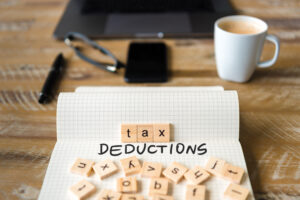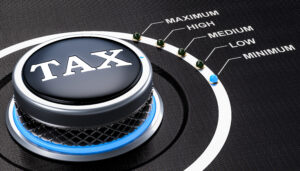What Do You Do When You Owe Taxes But Don’t Have the Funds?
For many people tax season brings the joy of a nice big refund to go out and splurge on something they’ve had your eye on for a long time. On the flip side of the equation are those people who surprisingly, or not, end up owing the IRS money. Not only do these people miss out on the extra cash influx, but they also have to come up with the funds to pay off the extra tax bill.
For some people, depending how high the bill is, they could have to pay even more than just the shortage amount. That’s because many times when people underpay they end up owing penalties for the underpayment. For those who owe a lot of money, those penalties could end up being huge. In fact, the penalties can even be much higher than the shortage.
That’s why it’s always best to try to avoid owing any money to the IRS, especially if you don’t have the funds to pay it off when the tax bill comes due. So what happens to people who can’t pay their tax bill? You do have a few options.
In some cases, it might be a good idea to take out a loan or a line of credit in order to pay off the bill. Of course, you will then be responsible to pay off the loan, so use caution. Another option is to apply for an extension with the IRS. This could buy you a little time to come up with the needed funds. If you need even more time then try applying for a hardship extension, which could give you up to six months to pay it off. You could also ask the IRS for permission to set up a payment plan to pay off the debt in installments.
Whichever path you decide to take, make sure you do something. Don’t ignore the problem or it will only get worse. The penalties will likely increase the longer you wait and the IRS could eventually take other measures or even press charges. So the bottom line is: do something.
What Is Section 1202 Stock?
The Protecting Americans From Tax Hikes Act of 2015 (PATH Act), which was signed into law late last year, finally made several temporary tax breaks permanent. Among the tax breaks included is the Small Business Stock Gains Exclusion, known as Section 1202. So what is the Small Business Stock Gain Exclusion? Section 1202 is designed…
Some of the Most Amazing Tax Deductions Ever
At GROCO, we have been doing this for more than 50 years. That means we’ve heard just about every crazy tax story you can imagine. With tax season now officially in full swing we thought we would share some of the craziest tax deduction stories we’ve ever heard; and they’re all true. A gas station…
Is The U.S. Really a Low-Tax Country?
Many U.S. taxpayers feel that our country’s taxes are too high, no matter which economic class you’re in. Likewise, regardless of which side of the political world you rest, most people would agree that the U.S. tax system needs some serious upgrading, and not just some fine-tuning. However, it appears that compared to many of…
Will Your Tax Return Draw the IRS’s Attention?
No one wants to experience a tax audit. The good news is that most people never will have to go through that experience. The IRS simply doesn’t have the time and resources to audit every tax return. In fact, the IRS only audits about 1 percent of all returns. That means most people don’t have…




